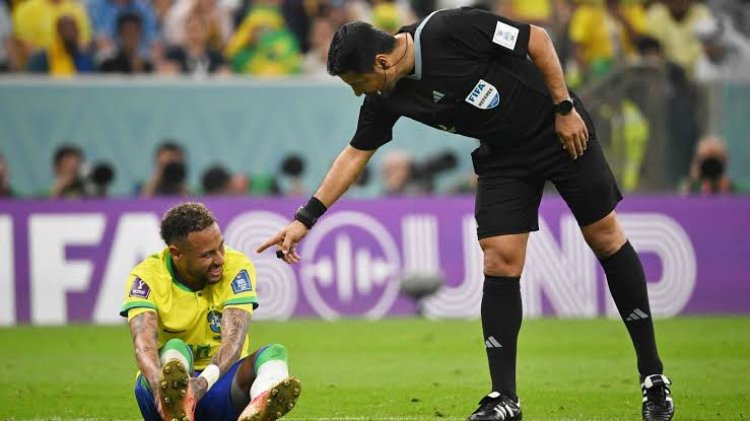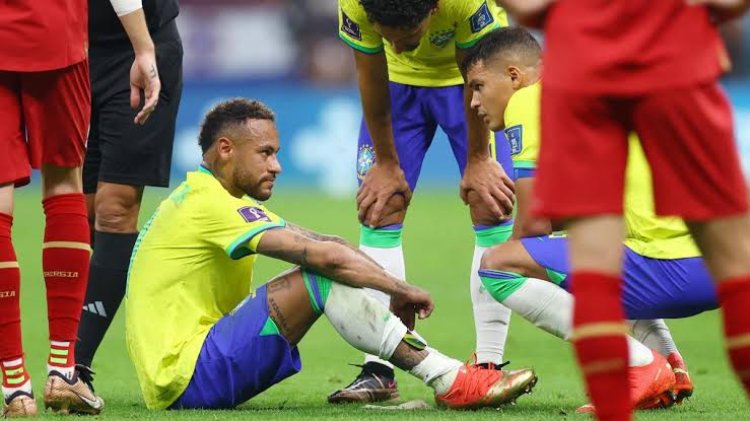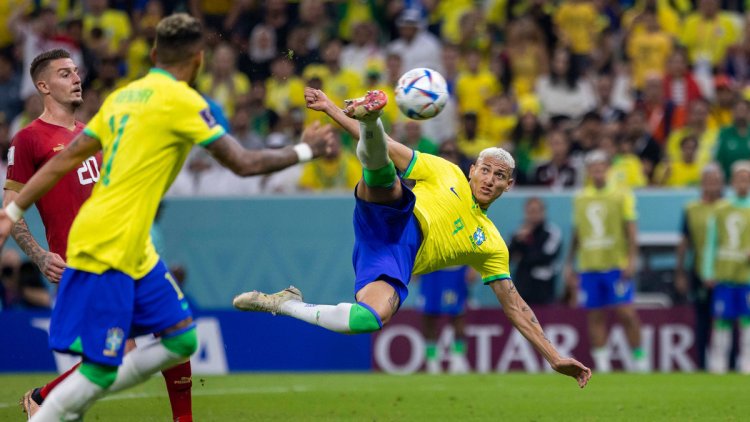Brazil President Bolsonaro relished Neymar’s pain

When Neymar limped out of Brazil’s win against Serbia, cabinet members for the president-elect, Luiz Inácio Lula da Silva, rejoiced. In footage of these celebrations, some can be seen waving farewell to the injured star as he left the pitch. “Good riddance” was the message of the president of the Workers’ Party, Gleisi Hoffmann.
This resentment towards the team’s star player stems from Neymar’s support for the far-right president Jair Bolsonaro, who was beaten by the left-wing former president Lula in his pursuit for a second term.
In a very polarised election, Lula got 50.9 per cent of the votes, and these voters have not forgotten that the Paris Saint-Germain star promised in October — during a livestream on Bolsonaro’s YouTube channel — to make a “22” (Bolsonaro’s voting code) gesture if he scored in Qatar.
All this means that when it was confirmed that Neymar would miss both today’s game against Switzerland and Friday’s clash with Cameroon, the national feeling was very different from that in 2014, when Brazil’s No 10 was ruled out of their semi-final against Germany with a back injury.
Then, the host nation almost went into a state of mourning. Now, the anti-Neymar sentiment has not gone unnoticed by his Brazil team-mates. Raphinha, the Barcelona winger, reposted a text from a fan account on Instagram: “The Argentines treat Messi as a god. The Portuguese treat Cristiano as a king. Brazilians cheer for Neymar to break a leg. How sad, the biggest mistake in Neymar’s career is being born in Brazil, this country does not deserve his talent & football.”
Football’s involvement in Brazil’s political battle began in 2016 when right-wing protesters wearing Brazil shirts took to the streets in massive demonstrations, demanding the impeachment of the president at the time, Dilma Rousseff, for misconduct and disregard for the federal budget.
That anticorruption movement, prompted by a probe of Brazil’s state-owned oil company, Petrobras, gained nationalist sentiment. “Our flag will never be red,” was one of their favourite battle cries, in reference to the red star that is the symbol of Rousseff’s Workers’ Party.
Bolsonaro managed to capitalise on these feelings when ascending to power in 2018, using anti-Communist slurs and pseudo-religious rhetoric, being labelled “Tropical Trump” at the time.

“That [in 2016] was the moment when this right-wing wave first claimed that they represented the whole of the Brazilian people,” explains Pablo Ortellado, a philosopher and professor at the University of São Paulo, where he leads the Digital Political Debate Monitor, a centre of study on how political discourse unfolds on Twitter, WhatsApp, Facebook and Telegram.
“They always meant to say they were the people, from then onwards,” Ortellado says.
During the 2018 World Cup in Russia, there was already enough tension among leftists in Brazil about wearing the yellow-and-green shirt, with many people consciously adhering to the blue away top or re-creating it in red or white.
However, discontent increased during Bolsonaro’s tenure, especially with his government’s effort to discredit masks, social distancing and vaccines in a country where more than 689,000 have died from Covid-19 since 2020. To many from the centre-right to the left, Brazil’s home jersey was not Pelé’s sacred robe any more, but a despicable far-right symbol to be avoided, and the typical sign of Bolsonaro’s supporters.
The politicisation of the colours peaked on Brazil’s Independence Day in September, when Bolsonaro gathered allies at Copacabana Beach wearing the national side’s tops under their campaign motto: “God, Homeland, Family, Freedom.”
However, as the World Cup period was approaching, there was little doubt that Brazilians would take their five-star shirt out of the closet.
On Thursday banks and post offices closed after lunch, releasing workers to watch the game against Serbia. A poll released one day before that game stated that 77 per cent felt at ease with the national colours.
The Bolsonarists who once proudly wore the national shirt are now shunning it. One day before Brazil’s first game, thousands of “patriots” who had been camped in front of the Brazilian army’s barracks since their electoral loss — demanding from the officers a coup d’état to block Lula’s ascension in January — were told to abandon their yellow tops in favour of camouflage and black T-shirts.
According to a recent poll, young Brazilians are less passionate about the game and do not consume football as their parents and grandparents did — as a way to define their own identity — but they do see football as a family tradition.

However, 64 per cent of this same generation demand football to be more committed to social issues, while one in four would abandon their club were it involved with some sort of discrimination.
This is perhaps one reason why Richarlison, born in 1997, is gaining idol status to rival that of Neymar, five years his senior.
The striker, who scored twice against Serbia, often stands out because of his engagement with social causes. These include solidarity gestures, such as his purchase of oxygen cylinders in 2021 for hospitals in the Amazon during the shortage at the height of the Covid-19 pandemic. Richarlison was inevitably destined to be the leftists’ darling in Qatar, although he was never outspoken about his choice of vote at the election.
The reality now is that in Brazilian politics, some goals will be celebrated more than others. THE TIMES.




















